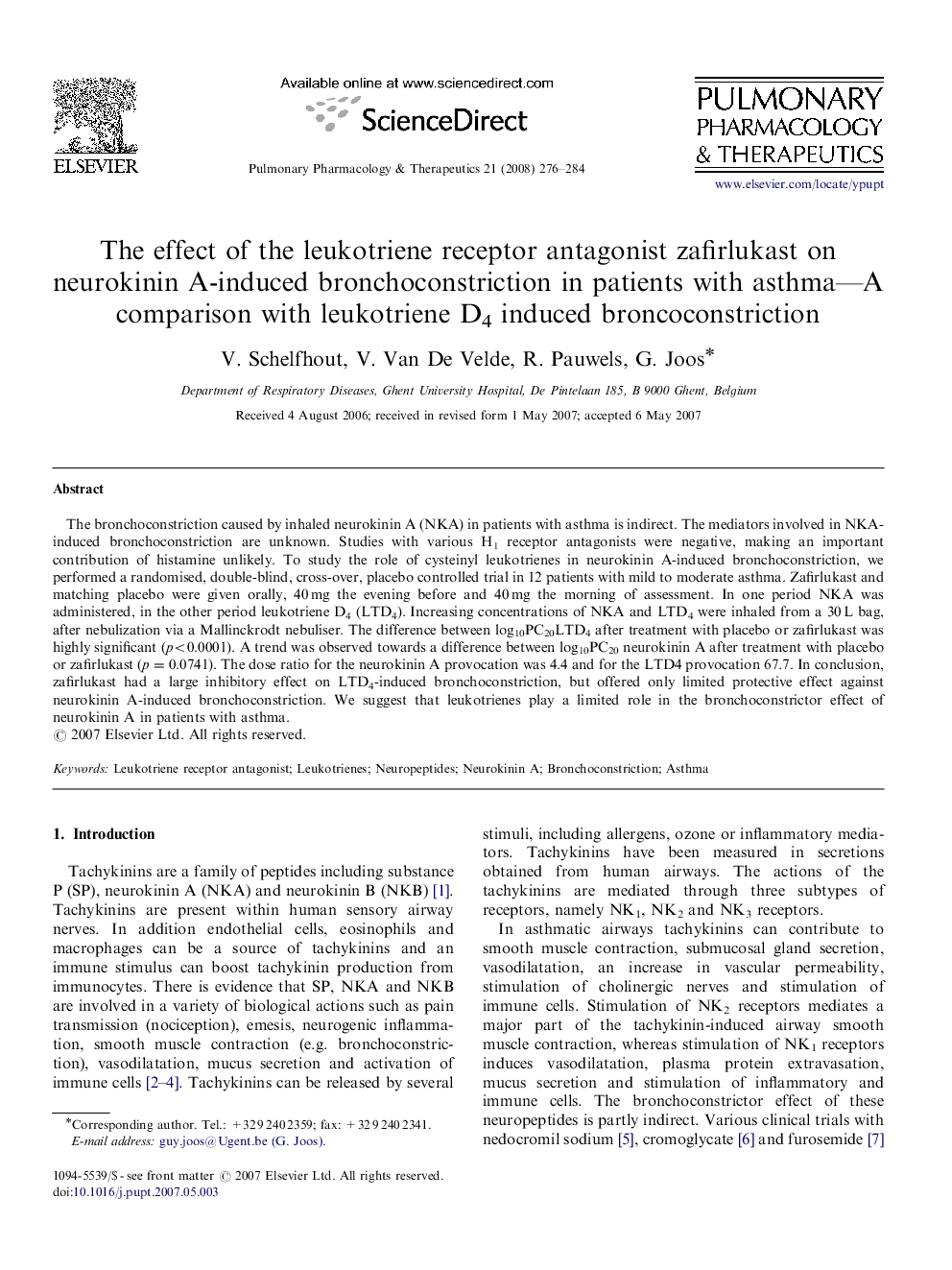| Article ID | Journal | Published Year | Pages | File Type |
|---|---|---|---|---|
| 2567802 | Pulmonary Pharmacology & Therapeutics | 2008 | 9 Pages |
The bronchoconstriction caused by inhaled neurokinin A (NKA) in patients with asthma is indirect. The mediators involved in NKA-induced bronchoconstriction are unknown. Studies with various H1 receptor antagonists were negative, making an important contribution of histamine unlikely. To study the role of cysteinyl leukotrienes in neurokinin A-induced bronchoconstriction, we performed a randomised, double-blind, cross-over, placebo controlled trial in 12 patients with mild to moderate asthma. Zafirlukast and matching placebo were given orally, 40 mg the evening before and 40 mg the morning of assessment. In one period NKA was administered, in the other period leukotriene D4 (LTD4). Increasing concentrations of NKA and LTD4 were inhaled from a 30 L bag, after nebulization via a Mallinckrodt nebuliser. The difference between log10PC20LTD4 after treatment with placebo or zafirlukast was highly significant (p<0.0001). A trend was observed towards a difference between log10PC20 neurokinin A after treatment with placebo or zafirlukast (p=0.0741). The dose ratio for the neurokinin A provocation was 4.4 and for the LTD4 provocation 67.7. In conclusion, zafirlukast had a large inhibitory effect on LTD4-induced bronchoconstriction, but offered only limited protective effect against neurokinin A-induced bronchoconstriction. We suggest that leukotrienes play a limited role in the bronchoconstrictor effect of neurokinin A in patients with asthma.
